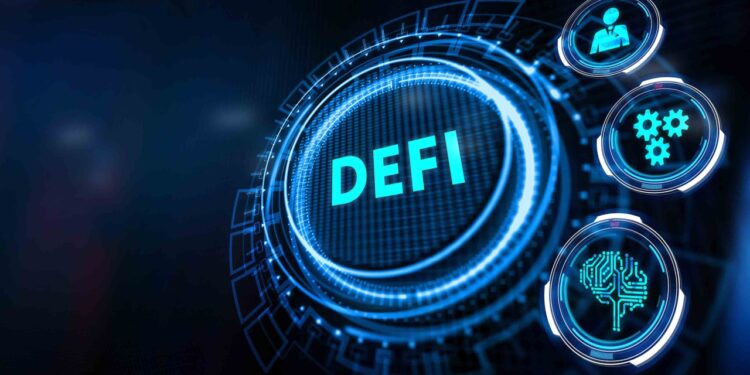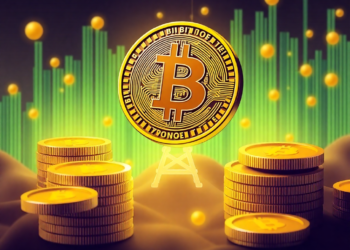In the ever-shifting terrain of finance, the emergence of Decentralized Finance (DeFi) has brought about seismic disruptions, particularly in traditional derivative markets. Derivatives, once solely the domain of centralized institutions, are now experiencing a democratization of access and innovation thanks to DeFi protocols. This article delves into how DeFi is reshaping traditional derivative markets, the challenges it poses, and the potential it holds for the future.
Understanding DeFi and Derivatives
DeFi refers to a set of financial services and applications built on blockchain technology, primarily Ethereum. It aims to recreate traditional financial systems, such as lending, borrowing, and trading, in a decentralized manner, removing the need for intermediaries like banks or brokerages.
Derivatives, on the other hand, are financial contracts whose value is derived from an underlying asset. These assets can include stocks, bonds, commodities, or even other derivatives. Traditionally, derivatives have been traded on centralized exchanges and are subject to the rules and regulations of governing bodies.
Disrupting Tradition with DeFi
DeFi platforms offer several advantages over their traditional counterparts, making them attractive alternatives for derivative trading:
- Accessibility: DeFi protocols are accessible to anyone with an internet connection and a compatible wallet. This inclusivity opens up derivative markets to a global audience, democratizing access to financial services.
- Transparency: Transactions on DeFi platforms are recorded on a public blockchain, ensuring transparency and immutability. This transparency reduces the risk of fraud and manipulation, fostering trust among users.
- Lower Costs: By eliminating intermediaries and automating processes through smart contracts, DeFi platforms can significantly reduce transaction costs. This cost-effectiveness makes derivative trading more affordable and accessible to retail investors.
- Liquidity: DeFi protocols leverage liquidity pools, where users can contribute their assets to facilitate trading. This liquidity pooling mechanism ensures continuous market liquidity, even for less-traded derivatives, enhancing market efficiency.
- Innovation: DeFi is a hotbed of innovation, with developers constantly experimenting with new financial instruments and trading mechanisms. This innovation fuels the evolution of derivative markets, introducing novel products and strategies.
Challenges and Opportunities
While DeFi presents exciting opportunities for the derivative market, it also poses several challenges:
- Regulatory Uncertainty: The regulatory landscape surrounding DeFi is still evolving, creating uncertainty for market participants. Regulatory compliance is essential for mainstream adoption and institutional involvement in DeFi derivative markets.
- Security Risks: DeFi platforms are susceptible to smart contract bugs, hacks, and exploits. Ensuring the security and robustness of smart contracts is paramount to safeguarding user funds and maintaining trust in the ecosystem.
- Market Volatility: DeFi markets can be highly volatile, with prices fluctuating rapidly due to factors such as speculation and market sentiment. Managing risk in such a volatile environment requires sophisticated risk management strategies and tools.
- Scalability: As DeFi gains traction, scalability becomes a pressing concern. Ethereum, the dominant blockchain for DeFi, has faced scalability issues, leading to congestion and high gas fees. Scalability solutions are needed to support the growing demand for DeFi derivatives.
Despite these challenges, DeFi presents immense opportunities for innovation and growth in derivative markets:
- Decentralized Governance: DeFi platforms often feature decentralized governance mechanisms, allowing users to participate in decision-making processes. This democratic governance model promotes community involvement and fosters a sense of ownership among users.
- Programmability: Smart contracts enable programmable derivatives, allowing for complex financial products and automated trading strategies. This programmability opens up new avenues for derivative innovation, such as decentralized options and synthetic assets.
- Interoperability: DeFi protocols are interoperable, meaning they can seamlessly interact with each other. This interoperability fosters collaboration and integration among different platforms, creating a vibrant ecosystem of interconnected financial services.
- Financial Inclusion: By removing barriers to entry and providing access to financial services for underserved populations, DeFi promotes financial inclusion on a global scale. Derivative markets can play a crucial role in this endeavor by offering hedging and investment opportunities to previously excluded individuals and communities.
Looking Ahead
As DeFi continues to mature and innovate, its impact on traditional derivative markets is likely to deepen. From democratizing access to derivatives to fostering innovation in product design and trading mechanisms, DeFi is reshaping the financial landscape in profound ways. While challenges such as regulatory uncertainty and scalability persist, the potential for DeFi to disrupt and transform traditional derivative markets is undeniable. As the journey unfolds, one thing remains certain: the future of derivatives is decentralized.










